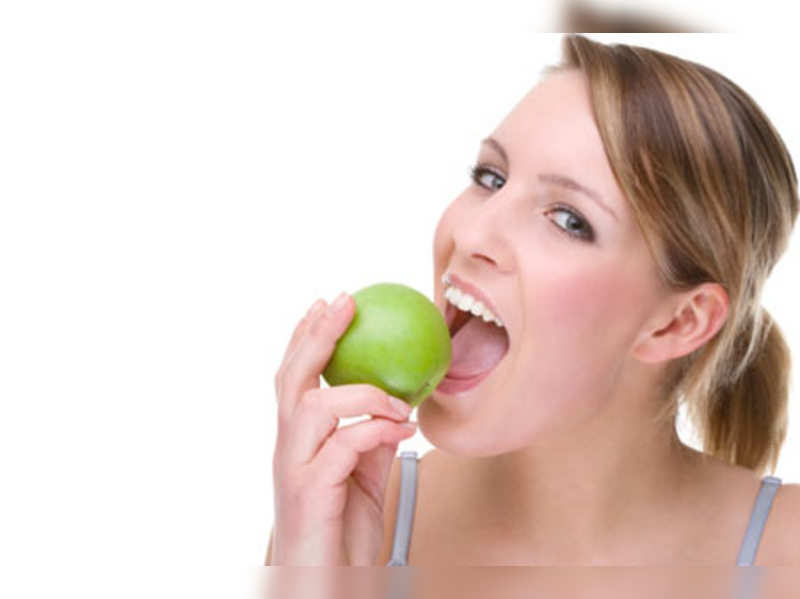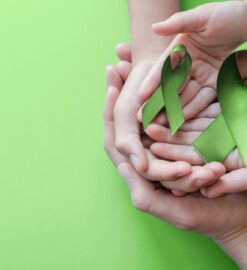Here is why food and drinks with acid can cause problems for your oral health

When you hear the word ‘acid’, you probably recall all the chemicals you saw in your high school chemistry class or perhaps you think it’s the ‘thing’ that causes indigestion and heartburn. However, the acids that you should be concerned about are the ones that affect oral health.
Although most foods in your diet are low in acidity, there are many drinks and foods that contain high acid levels-significant enough to permanently damage your teeth. When the acid content in your diet is high, it erodes away the enamel on the teeth.
How does acid affect the teeth?
Every time you eat or drink something acidic, it softens the enamel on your teeth and causes a loss in mineral content. The constant exposure to acid will eventually weaken the enamel so much that it becomes vulnerable to damage. Luckily, your saliva helps to neutralise the acidity and bring back the pH balance in your mouth. Nevertheless, if the acid attack occurs too often and the mouth doesn’t get a chance to re-balance itself, it will lead to enamel loss.
Enamel is the white, shiny, protective coat on your teeth. It shields the dentin below it. If your tooth enamel wears away, the dentin gets exposed and may cause tooth sensitivity and pain.
Citric acid, carbonic acid, and phosphoric acid are the common types of acid in your food and drink. They are responsible for weakening enamel and causing dental erosion.
What food and drink contain high acid levels?
- Fizz
If you see ‘fizziness’ in your drink, it’s probably acidic. The most popular fizzy drinks are sodas, colas, and similar carbonated drinks. Even colas labelled as ‘diet’ are highly acidic. Flavoured fizzy water and carbonated lemonade can also harm your teeth.
Surprisingly, what many people do not know is that alcohol is acidic. The following alcoholic drinks contain high acid levels:
-Prosecco
-Beer
-Cider
-Red and white wine
-Alcopops.
The best way to protect your teeth from damage is to have your alcohol with food and water. This helps to balance the pH level and increases saliva in the mouth. Develop the habit of consuming alcohol at only mealtimes. In addition, limit your exposure to carbonated drinks. When you have a glass of wine or soda, drink it quickly. Avoid swishing it around in your mouth. This limits the exposure of acid to your teeth. You may also use a straw. Lastly, if you have to consume fizzy drinks, practice good oral by brushing your teeth once you return home.
In terms of the best drinks for your teeth, plain water (not sparkling) and milk are good options. Milk does wonders to neutralise the acidity in your mouth.
- Fruits
They are an important part of a well-balanced diet. However, since most contain citric acid, it may cause dental erosion. Citrus fruits like oranges and grapefruit are the worst offenders. They have low pH levels, which indicate they are acidic.
Other fruits that have low pH levels are:
-Pineapples
-Peaches
-Blueberries
-Grapes
-Limes
-Lemons
-Plums
-Tomatoes.
You cannot remove these foods from your diet as they are very nutritious for your health. Whole fruits contain minerals, fibre, and vitamins. However, there are a few protective measures you can take to limit the damage caused by eating fruits.
-Eat fruit during mealtimes like at breakfast, dinner, or lunch
-Try to eat the fruit as a whole. Avoid juicing the fruit. Many nutrients are lost in the juicing process. Most fruits are naturally high in sugar. Too much can cause cavities.
-Avoid drinking packaged fruit juices. These contain added sugar which will harm your teeth enamel.
- Sour candies
The sweet and sour taste of sour candies is simply delicious. But did you know they are one of the most damaging foods for your teeth? The high glucose content in the candies adheres to your teeth and is difficult to remove without proper brushing. Candies are also acidic. They will quickly wear down the enamel coating of your teeth. A few sour candies have a pH level of 1.6. This is alarmingly high as it is close to the pH of battery acid. When sugar is added into the mix, you can seriously and permanently damage your teeth. In worse case scenarios you may need Same Day Dentures!
- Other acidic foods and drinks
There are other foods and drinks n your daily diet that contain high acid levels, such as:
-Tea and coffee
-Tomato sauce, pasta sauce, ketchup
-Cranberries
-Pickles
-Marmalades
How to protect your teeth from the damage caused by acid?
Apart from minimising the drinks and foods that contain high acid levels, there are a few steps you should take to protect your pearly whites. Eat foods with a high pH value. Good examples of foods with high pH levels are:
- Dairy products like milk and cheese
- Brown rice and whole grains
- Mangoes, apples, melons, and bananas
- Eggs, lean meats, and fish
- Most vegetables
In addition, there are several dental wellness measures you should include in your routine, such as:
- Brush your teeth at least twice a day.
- Floss after every meal.
- Rinse your mouth after every meal.
- Visit a dental professional twice a year for cleaning and fluoride treatment.
- Drink lots of water, especially during and after meals. This helps rinse away the acid from certain foods.
- Use toothpaste with fluoride. It can repair your damaged enamel.
- Use mouthwash with fluoride as it can minimise the severity of enamel erosion.
- Chew on sugar-free gum regularly to increase saliva production and improve breath freshness. It also neutralises the acid in your mouth.
Conclusion
Many of us are unaware that there are many foods and drinks in our daily diet with high acid levels. Over time, it can weaken the enamel and cause tooth pain and decay. However, with a few proactive measures, you can minimise exposure to high acid levels and maintain the health of your teeth.



